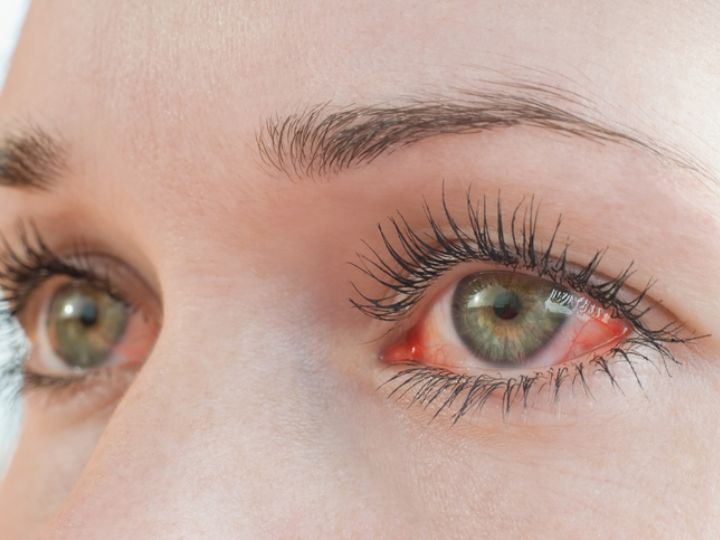All Categories
Featured

While the majority of people recognize the significance of protecting their skin from the sunlight, the unsafe results of ultraviolet (UV) rays on eye health commonly go ignored. Nevertheless, too much direct exposure to UV radiation can result in a series of eye problems, several of which can lead to long-term damage. Whether you're soaking up the sunlight on a summer season day or walking outdoors on an over cast afternoon, securing your eyes from UV rays is vital. Below's what you require to find out about the effects of UV radiation on your eyes and exactly how to safeguard them.
What Are UV Rays? UV rays are a kind of electro-magnetic radiation given off by the sunlight. They are classified into three types:
UVA Rays: These penetrate deep right into the skin and eyes and can contribute to long-term damages. UVB Rays: These rays are much more extreme than UVA and are mainly in charge of surface-level damages to the eyes and skin. UVC Rays: These are one of the most damaging but are primarily soaked up by the Planet's ozone layer and do not generally reach us. UVA and UVB rays are the primary perpetrators behind eye-related damages.
Short-Term Results of UV Exposure on the Eyes. Even short-term exposure to intense UV rays can damage your eyes. One typical condition triggered by this is photokeratitis, or "sunburn of the eye." Signs and symptoms of photokeratitis include:
Unpleasant, red eyes. Level of sensitivity to light. Tearing or excessive watering. Temporary vision loss or fuzzy vision. Photokeratitis is typically temporary, but it offers as a warning of exactly how damaging UV exposure can be, even in tiny doses.
Long-Term Impacts of UV Direct Exposure. Prolonged direct exposure to UV radiation can result in a lot more major and permanent eye problems, such as:
Cataracts: UV rays can accelerate the formation of cataracts, a condition that causes clouding of the eye's natural lens, leading to blurred vision and, if untreated, loss of sight.

Macular Degeneration: UV direct exposure can harm the retina, specifically the macula, enhancing the danger of age-related macular deterioration (AMD), which influences main vision.
Pterygium: A growth of cells on the white part of the eye that can prolong over the cornea, triggering pain, inflammation, and vision troubles.
Pinguecula: UV direct exposure can create yellow-colored deposits to base on the conjunctiva, causing irritability and dryness.
Skin Cancer Cells Around the Eyes: The fragile skin surrounding your eyes is extremely vulnerable to UV radiation, enhancing the danger of skin cancers like basal cell carcinoma and squamous cell cancer.
Just How to Shield Your Eyes from UV Rays. Protecting your eyes from UV rays is easy and calls for a few mindful habits:
Purchase Top Quality Sun glasses: Pick sunglasses that block 100% of UVA and UVB rays. Seek tags that define "UV 400" defense. Wrap-around styles are optimal as they block UV rays from the sides as well.
Wear a Wide-Brimmed Hat: A hat with a brim at the very least 3 inches wide can considerably decrease UV exposure to your eyes and face.
Limitation Exposure Throughout Top Hours: UV rays are strongest in between 10 a.m. and 4 p.m. If you must be outdoors throughout these hours, ensure you're properly protected.
Do Not Be Tricked by Clouds: UV rays can permeate through clouds, so it is essential to wear sunglasses even on cloudy days.
Secure Your Eyes Year-Round: Snow, sand, and water can mirror UV rays, escalating their impacts. Eye protection isn't just for warm summer days-- ensure you're covered in all periods.
Use UV-Blocking Call Lenses: Many call lenses now include UV security. If you wear calls, ask your eye doctor regarding lenses with built-in UV filters for included defense.
Encourage Eye Protection for Kid: Children's eyes are extra conscious UV rays because their lenses are more clear, allowing even more radiation to reach the retina. Make sure they wear sunglasses and hats throughout outdoor activities.
Regular Eye Tests. Regular check-ups with an eye care specialist are essential for early detection of any UV-related damages. An eye doctor or ophthalmologist can examine your eyes, advise safety measures, and spot conditions like cataracts or macular deterioration at an early stage.
Conclusion. UV rays posture a considerable danger to eye health, and their effects can build up gradually. With the best precautions, you can decrease these dangers and secure your vision. By using UV-blocking sunglasses, limiting sun direct exposure throughout top hours, and remaining constant with eye exams, you can guarantee your eyes stay healthy and your vision remains clear for many years to come. Securing your eyes from UV radiation isn't nearly convenience-- it's a vital action in preserving your long-lasting eye wellness.
Latest Posts
Conveniences of Opting for a Complete Roof Covering Tear-Off
Eye Center South - Discover Top Eye Doctors Near You for Expert Vision Care.
Eye Specialists South - Find the Best Eye Doctor Near Me for Advanced Vision Care and Treatment.
More
Latest Posts
Conveniences of Opting for a Complete Roof Covering Tear-Off
Eye Center South - Discover Top Eye Doctors Near You for Expert Vision Care.
Eye Specialists South - Find the Best Eye Doctor Near Me for Advanced Vision Care and Treatment.